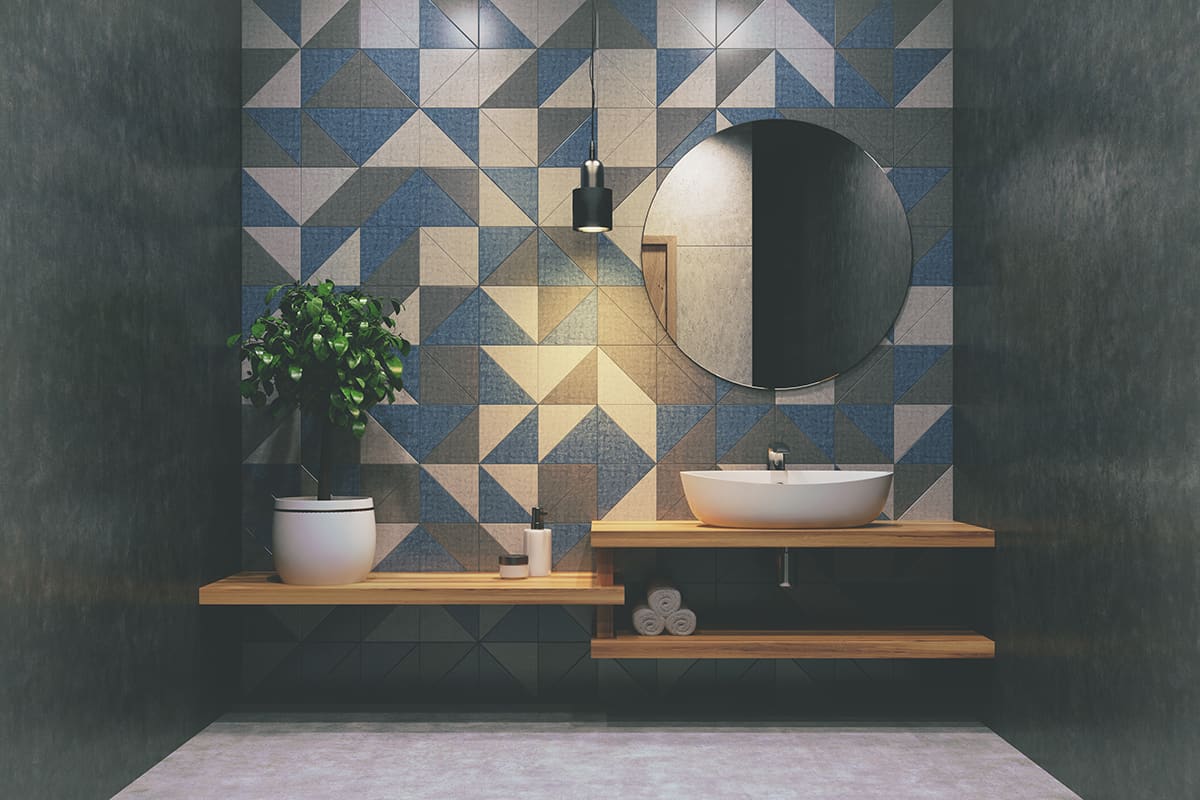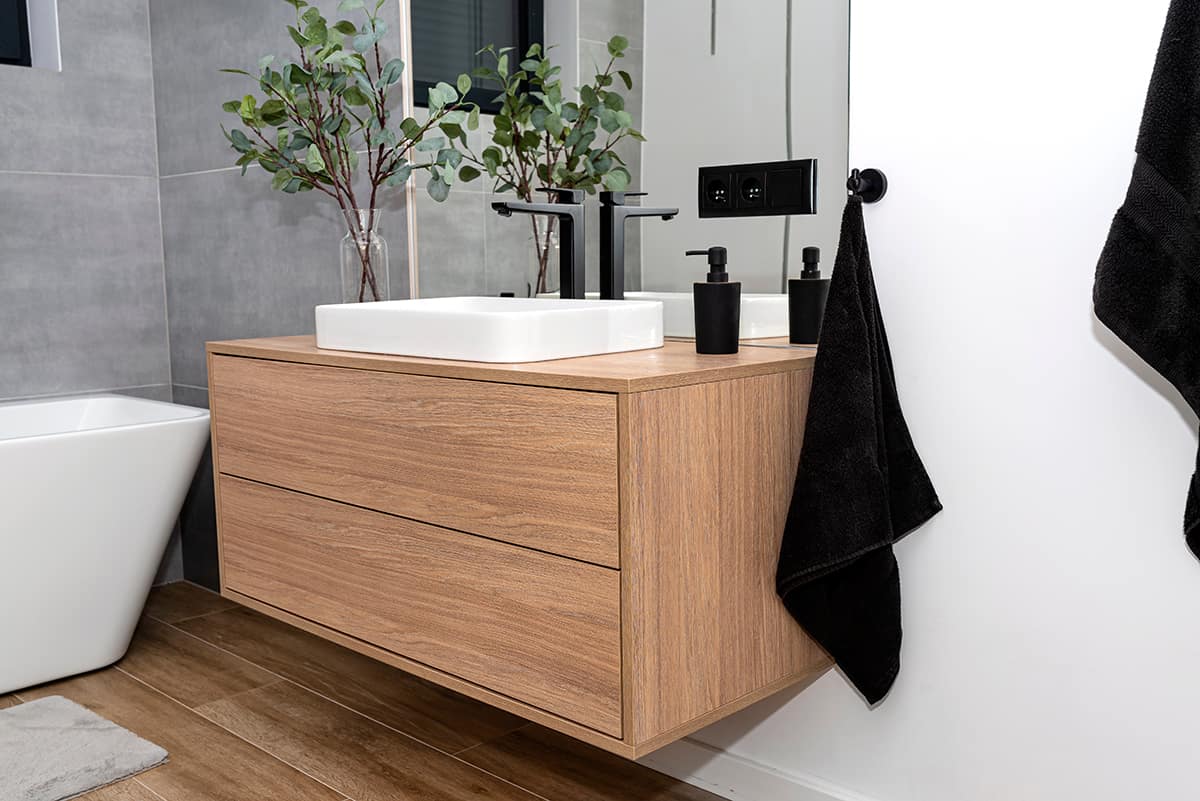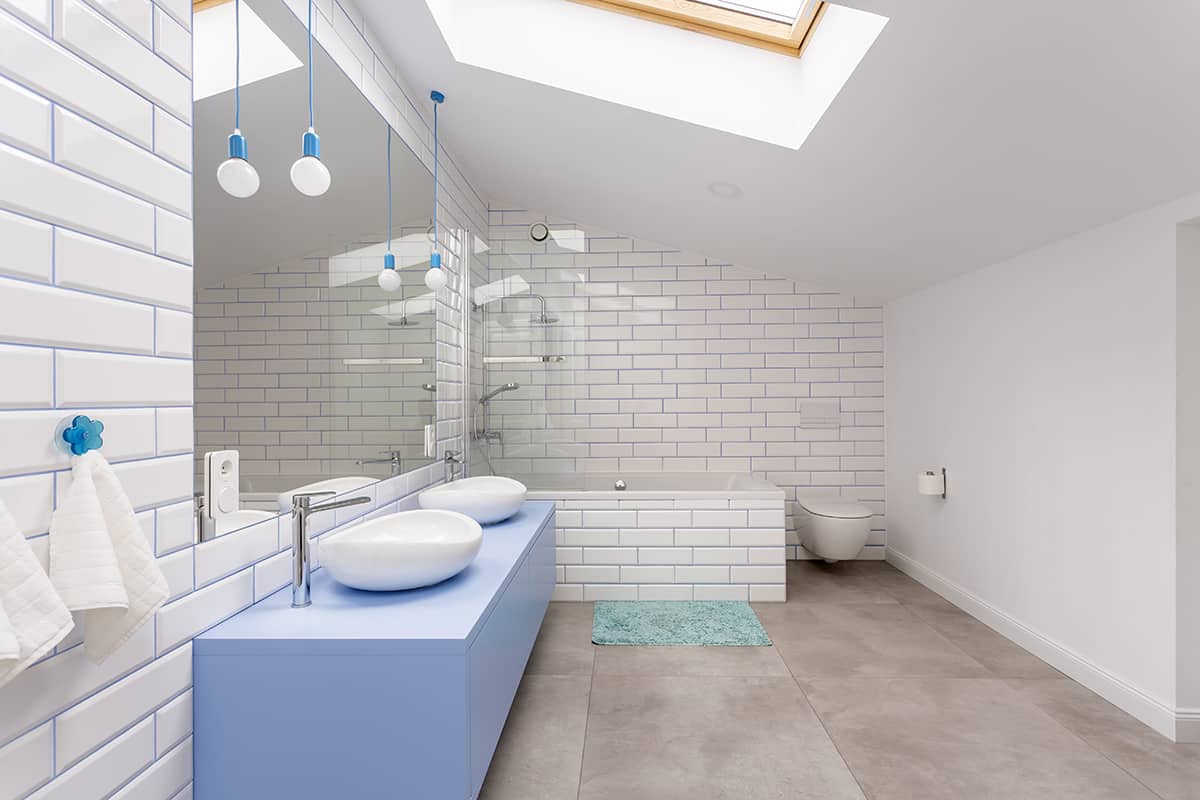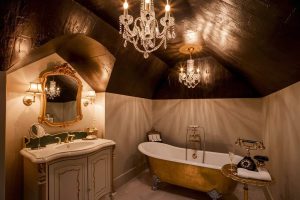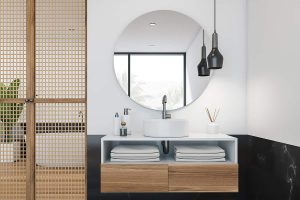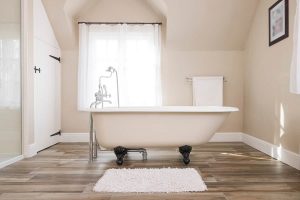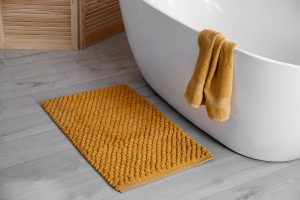Choosing between glossy tiles and matte tiles when you’re renovating a bathroom comes down to more than just style preference because the decision you make here can actually affect how you use the space and how often you need to clean it.
You’ll also need to factor in elements that are specific to your bathroom, for example, the size of the space, the amount of natural light it gets, and the color scheme you want to use. All of these things will have an impact on the eventual look of the tiles and the overall look and feel of the bathroom.x
This guide details the pros and cons of glossy and matte tiles for bathroom walls to help you make the best choice for your home.
Are Glossy Tiles More Stylish Than Matte Tiles?
The types of bathroom tiles whether glossy or matte are entirely dependent on the type of look you want to achieve in your bathroom. Glossy tiles will give you a sleek look that is more in keeping with a high-end, luxury hotel bathroom, while matte tiles can create a more rustic, earthy feel that can be extremely stylish but in a very different way from glossy tiles.
Matte tiles can work with a wide variety of interior decor designs, and they come in numerous finishes to emulate the appearance of wood, slate, or stone, for example.
They are a great choice if you are leaning toward a more natural style bathroom or a bathroom with an industrial vibe. Glossy tiles are more synonymous with sophistication and glamor, so they work well in a bathroom where you want to achieve a gleaming, polished style.
Pros and Cons of Matte Bathroom Tiles
Matte tiles can be a good choice for the bathroom, especially if you are looking for tiles for the bathroom floor. These types of tiles are best at hiding stains. However, they can be more hassle to clean. Here, we explore the advantages and disadvantages of matte tiles for the bathroom in greater detail.
Pros:
Slip-resistant
If you are thinking about whether to use matte or glossy tiles on a bathroom floor, then matte is almost always your best choice because they are much less slippery to walk on. The texture of matte tiles means there is more friction underfoot, which can help to prevent incidences of people slipping over.
Since bathrooms are spaces where the floor can commonly get wet, from dripping bodies emerging from the shower or children splashing in the bathtub, a matte tile floor can go a long way to help avoid accidents happening.
Show less dirt
Matte tiles don’t show dirt or stains as easily as glossy tiles, making them a good option for high-traffic spaces like a family bathroom. This is because matte tiles do not have a reflective surface, so water stains or soap scum will be much less evident compared to the same stains on a glossy surface.
Low maintenance
The result of matte tiles hiding stains better means that they don’t need to be cleaned as often in order to look acceptable. If you have a busy lifestyle and don’t get around to cleaning your bathroom as often as you’d like, then matte tiles will work well because you can go longer between cleans.
Cons:
Harder to clean
Although matte tiles don’t need to be cleaned as frequently as glossy tiles, unfortunately, when they do need cleaning, it can be a tiresome job. This is because the rougher texture of the tiles allows dirt and stains to grip on more tightly, so they will need to be scrubbed quite vigorously to get them clean.
Do not reflect light
Matte tiles don’t reflect light in the way that glossy tiles do, which means they are a poor choice if you are trying to make a bathroom feel larger and lighter. Matte tiles absorb light, so using them over a large space in a bathroom, for example, on the walls, can make a room feel small or dark.
Pros and Cons of Glossy Bathroom Tiles
One of the main drawbacks of glossy tiles is that they are slippery underfoot. However, this isn’t something you’ll need to consider when choosing between glossy and matte tiles for your bathroom walls.
Instead, focus on the overall look you want for your bathroom, how often you are likely to clean the tiles, and how you want the tiles to impact the feel of the space in terms of light and size. Here we explore the advantages and disadvantages of glossy tiles for the bathroom in greater detail.
Pros:
Light reflective
Glossy tiles have a reflective surface that is mirror-like or glass-like. One of the benefits of this is that glossy tiles can make a room feel brighter, much in the way that mirrors can help a room appear lighter and bigger.
If you have a small bathroom and you want to make it feel larger than it really is, then using glossy tiles is a good way to do this. The light bouncing off the tiles creates the sense of a more expansive space, which will not happen with matte tiles.
Easy to clean
Glossy tiles have a smooth, polished surface that makes them a dream to clean. Dirt and stains cannot cling to the shiny texture of these tiles, so they can be wiped down with a wet cloth or sponge very easily and will usually not require any scrubbing.
Cons:
Need cleaning more often
The smooth texture of gloss tiles means that dirt cannot grip onto them in the same way that it will hold on to matte tiles; however, the glass-like surface of glossy tiles does mean that stains show up much more easily.
Water stains and soap scum, in particular, will be easier to see on gloss tiles compared to matte tiles, so if you don’t intend to clean your tiles frequently, then it may make more practical sense to opt for matte tiles. This is especially the case when it comes to choosing tiles for shower walls or in a wet room because tiles in these areas will be more likely to suffer from soap and water stains.
Slippery
Gloss tiles have a smooth, glassy texture, which makes them very slippery, especially when wet. Since bathrooms are spaces where the floor will frequently get wet, and people tend to walk barefoot, this makes for a recipe for disaster. When choosing tiles for a bathroom floor, gloss tiles should be avoided in most cases, especially if there are young children using the bathroom.
If you do want to use glossy tiles on a bathroom floor, you’ll need to ensure everyone is aware that extra care needs to be taken when walking on them. In a wet room, where the floor of the shower is tiled instead of using a shower tray, gloss tiles should not be used. This is extremely dangerous because the tiles will become even more slippery when they come into contact with soaps, shampoos, and water from the shower.
If you are choosing tiles for bathroom walls, then the slippery factor won’t be an issue, and this disadvantage of gloss tiles can be disregarded.
